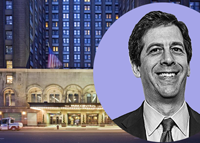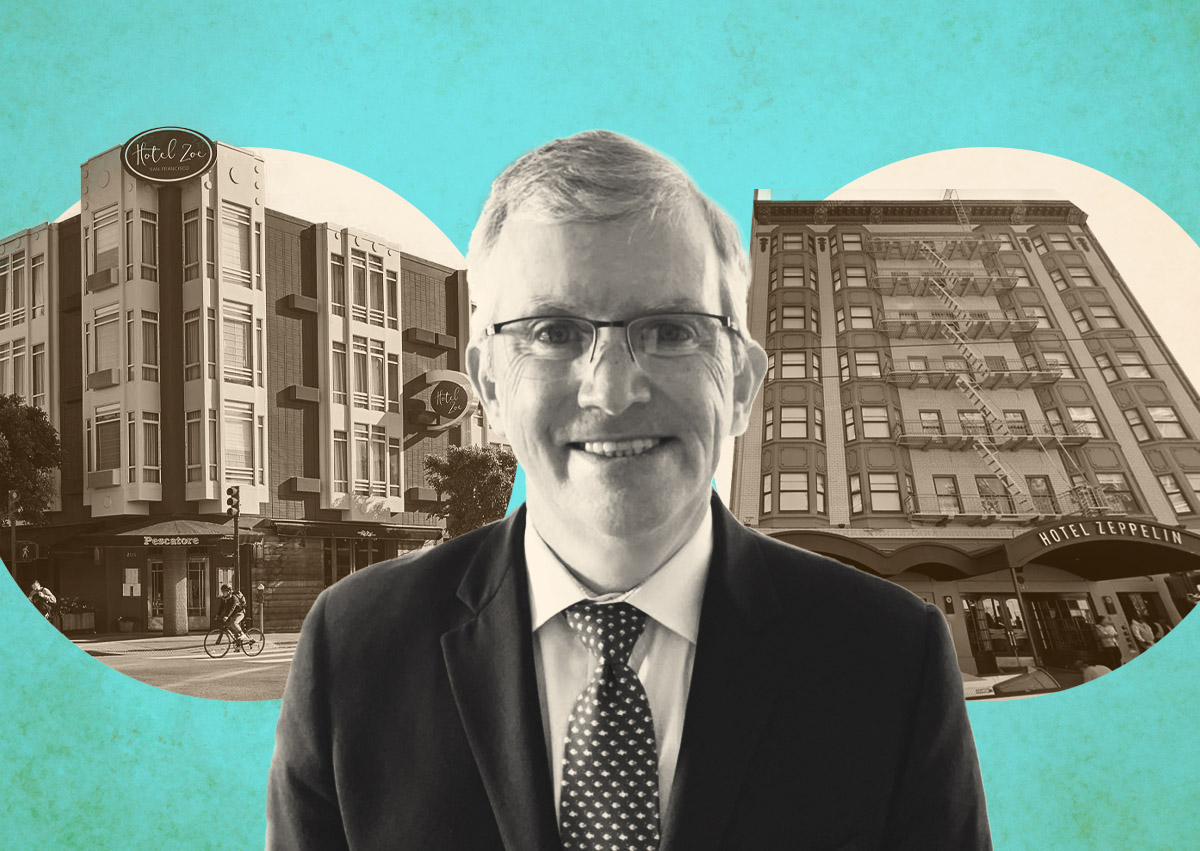Highgate Hotels has missed a balloon payment on about $250 million in debt attached to the Hyatt Regency Downtown SOMA, according to loan documents and special servicer commentary cited by Trepp.
The missed payment comes about a year after completion of a $70 million renovation of the 686-room hotel. The New York City-based hospitality property owner was up to date on its payments until last month, when the loan came due.
It bought the hotel for $315 million at the end of 2018. At the time, the property at 50 Third Street was known as the Park Central Hotel, the same name as an NYC property that Morgan Stanley-owned Highgate also bought for $366 million.
The two sister properties were purchased together from Pebblebrook, TRD reported at the time, using $250 million in financing from Blackstone. Pebblebrook was divesting hotels it gained through a merger with LaSalle Hotel Properties.
The 36-month, interest-only loan was originally due to mature in December 2021, according to loan documents, but appears to have been extended for two years. Highgate did not reply to a request for comment on whether or not it was in the process of attempting to refinance or extend the loan further.
An approximately $40-million portion of the loan was pooled into a $1.5-billion Blackstone collateralized loan obligation that originated in 2020.
A CLO is slightly different from a traditional commercial mortgage back securities, or CMBS, deal in that it is generally used for properties that are in the midst of a transitional period and are often for shorter terms.
Highgate spent $70 million on a massive renovation of the 1984 building, which sits just over a block from the Moscone Center, which had previously been a Westin and an ANA hotel. It was rebranded as the city’s second Hyatt Regency before it reopened in fall 2022.
The renovation work included a full redesign of guest rooms and event spaces, plus the addition of a fitness center, restaurant, private club and coffee bar.
Just because a company has recently reinvested a large sum into a property doesn’t mean they won’t walk away, said Manus Clancy, senior manager at Trepp.
“It depends on the borrower,” he said. “Some are very clear that it’s water under the bridge. All you look at is the future prospects of the property and if you have sunk in $50 million that really doesn’t matter, if you feel like you’re throwing good money after bad.”
In the case of the Hyatt Regency SOMA, Clancy said the good news is that the hotel was at 76 percent occupancy for the 12 months ending September 2023. That’s not bad considering it is so close to Moscone, which SF Travel has said is not expected to get to 90 percent of pre-COVID levels for convention bookings until 2028.
Sinking net income
Measuring the financial health of a hotel should take various metrics into account, not just vacancy, said Alan Reay of hotel brokerage Atlas Hospitality Group. There’s also the daily room rate, which is doing fine for the Hyatt Regency at about $270 per night and about $206 revenue per available room.
For Highgate, the property’s net operating income may be a critical issue, he said.
Though the property brought in $51.2 million in room revenue in 12 months preceding September 2023, the net operating income is just $4.8 million, according to Reay, a far cry from the $19 million in net operating income in 2017.
“Obviously their expenses have gone way, way up,” he said, citing labor, insurance and the cost of goods impacted by inflation.
If Highgate didn’t have the loan maturing, it might still make sense to hold onto the hotel. But figuring a presumed 9 percent cap rate, the value for the property today is only $54 million, Reay said, so it makes sense if Highgate decides it’s time to walk away from its $250 million debt.
“This is not a reflection of Highgate making a bad investment,” he said. “It’s a reflection of the market.”
“Meeting convention hotels”
The key to whether or not Highgate will default is if the ownership thinks their money may be better spent investing in other markets. Other owners have already begun to make that decision, Reay said, including Park Hotels, which is turning over the keys on two of the city’s largest hotels rather than pay back more than $700 million in debt tied to them.
Those hotels, both in Union Square, may be struggling due to larger quality of life issues in the city, Clancy said, “whether real or not.”
“Sometimes that negative press contributes to lower business travel, lower personal travel, and that weighs on all hotels,” he said. “If other hoteliers are giving back keys on properties, usually where there’s smoke, there’s fire.”
Reay said that the jury is still out on San Francisco hotels more generally, though they all face the same negative perceptions of the city and lack of convention traffic. But smaller boutique hotels appear to be doing better than huge “meeting convention hotels” like the Hyatt Regency, he said.
“If you’re going to San Francisco, unless you’re in a big-meetings business, you’re very unlikely to want to stay in a huge hotel like this,” he said.
Read more



